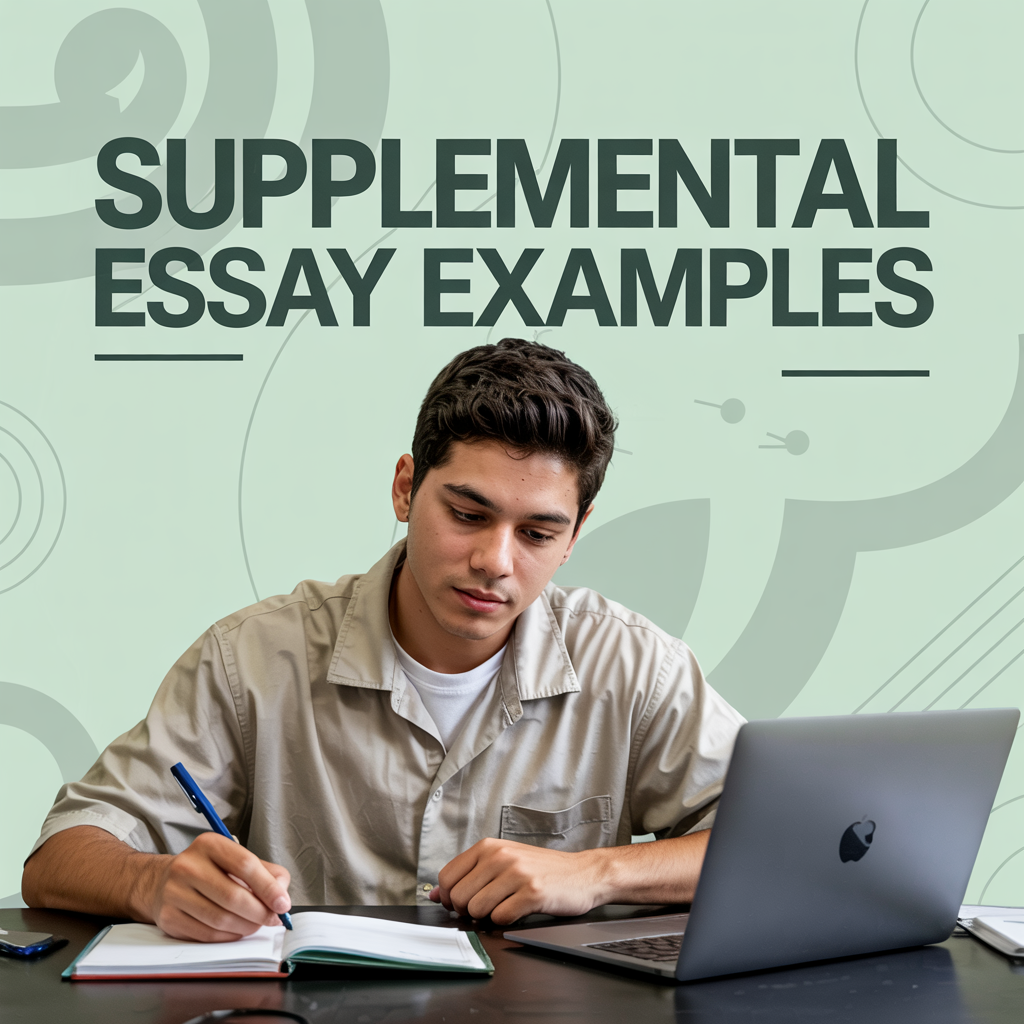Anatomy of a Great Supplemental Essay: Analyzing “Why Us?” and “Community” Examples

Beyond the main Common App essay, many colleges require shorter supplemental essays. These often ask specific questions like “Why do you want to attend our college?” or “Describe a community you belong to.” Nailing these requires a different approach than the personal statement. Analyzing supplemental essay examples, particularly common types like the “Why Us?” and “Community” prompts, can help you understand how to write supplemental essays that effectively showcase your fit and potential contributions.
💡 Want to stand out before you even write your essay? Start building your online student profile with Cirkled In — let colleges see the full you.
Why Supplemental Essays Matter
Colleges use supplemental essays to gauge your specific interest in their institution and understand how you see yourself fitting into their unique environment. They want to know:
- Have you done your research?
- Do you understand what makes their college distinct?
- How will you contribute to their community?
- Are your interests aligned with their offerings?
Generic answers won’t cut it. These essays are crucial for showcasing college fit.
Deconstructing the “Why Us?” Essay
This is perhaps the most common supplemental prompt. Colleges want to know why you chose to apply to them specifically, beyond just their reputation or location.
Goal: Connect your specific academic interests, activities, and goals to concrete opportunities, resources, or values at that particular college.
Common Mistakes:
- Generic praise (“Your college has a great reputation and beautiful campus.”)
- Simply listing programs or professors without connecting them to yourself.
- Focusing only on superficial aspects like location or sports teams.
- Writing an essay that could be sent to any college with minor changes.
Analyzing a Strong “Why Us?” Essay Example (Conceptual)
Imagine a strong why this college essay example:
- Introduction: Starts with a specific personal interest or academic spark (e.g., fascination with sustainable urban planning sparked by a local project).
- Connecting to the College (Paragraph 1 – Academics): Mentions specific professors whose research aligns with the interest (naming them and their work), particular upper-level courses (naming them), or unique interdisciplinary centers/programs at the college related to sustainable urban planning. Explains how these specific resources will help the student pursue their passion.
- Connecting to the College (Paragraph 2 – Extracurriculars/Community): Identifies a specific student club (e.g., Students for Environmental Action), research opportunity (e.g., the Urban Studies summer fellowship), or unique campus tradition related to sustainability or community engagement. Explains how the student envisions contributing to or learning from this specific aspect.
- Conclusion: Briefly reiterates the unique combination of opportunities at this college that makes it the ideal place for the student to pursue their specific interests and contribute their skills.
Key Elements: Deep research, specific examples (professors, courses, clubs), clear connection between student’s interests and college’s offerings.
Deconstructing the “Community” Essay
This prompt asks you to describe a community you belong to and your role within it. “Community” can be defined broadly – family, school club, neighborhood, cultural group, online group, sports team, etc.
Goal: Show your understanding of community, your ability to contribute positively, and potentially how you engage with diverse perspectives. Reveal your values and how you interact with others.
Common Mistakes:
- Only describing the community without explaining your specific role or contribution.
- Choosing a very generic community without unique insight.
- Focusing only on positive aspects without showing any complexity or learning.
- Not connecting the experience to potential contributions in college.
Analyzing a Strong “Community” Essay Example (Conceptual)
Imagine a strong community essay college example:
- Introduction: Defines the specific community (e.g., the cast and crew of the high school musical, a volunteer group at a local library, a tight-knit online forum for language learners). Briefly sets the scene.
- Your Role and Contribution: Describes the student’s specific actions and role within that community. Did they mediate a conflict? Organize an event? Mentor younger members? Introduce a new idea? Uses specific anecdotes or examples. Shows how they contributed, not just that they were a member.
- Challenges or Learning: Briefly discusses a challenge faced by the community or the student within it, and what was learned from navigating it. Shows reflection and growth.
- Connecting to College: Subtly links the skills or values demonstrated in that community (e.g., collaboration, problem-solving, appreciating different viewpoints) to how they hope to engage with the college community.
Key Elements: Specific community, clear role/contribution with examples, reflection/learning, connection to future engagement.
📘 Looking for a place to organize your experiences before writing about them? Cirkled In lets you track activities, skills, and impact all in one spot.
Key Takeaways for Writing Supplemental Essays
- Research is Non-Negotiable: Especially for “Why Us?”. You need specifics.
- Be Specific, Use Names: Mention professors, courses, clubs, programs by name.
- Connect to Yourself: Don’t just list things; explain why they matter to you and how you’ll engage.
- Show, Don’t Just Tell: Use brief anecdotes or examples to illustrate your points.
- Answer the Prompt Directly: Make sure you fully address what the college is asking.
- Authentic Voice: Write in your own genuine style.
- Proofread Meticulously: Errors detract from your message.
Final Thought: Specificity and Authenticity Win
Great supplemental essays require more than just good writing; they require thoughtful research and genuine reflection. By analyzing supplemental essay examples and understanding the goals behind prompts like “Why Us?” and “Community,” you can learn how to write supplemental essays that are specific, authentic, and effectively demonstrate why you are a great fit for that particular college.
Need more tips on college applications, scholarships, or just how to survive this whole process? Cirkled In has your back—check out Cirkled In resources to help you through every step of your college journey!
Check out Cirkled In and start owning your future today!



0 Comments